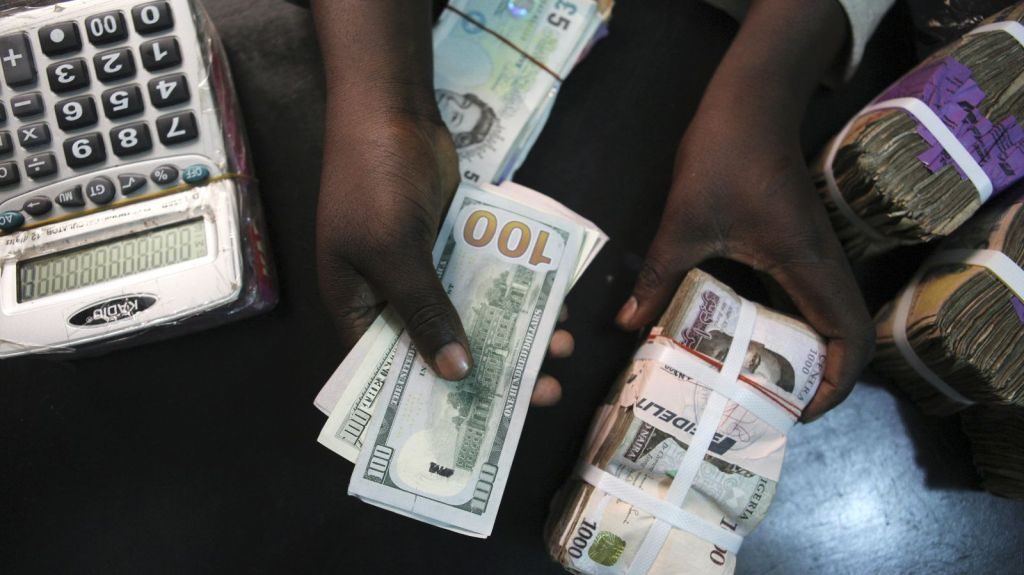The Central Bank of Nigeria, CBN, on Wednesday formally unveiled the much-awaited flexible foreign exchange policy that would allow the foreign exchange interbank trading window to be driven purely by market forces.
The new policy effectively removes controls on the naira, allowing increased dollar supply that would help strengthen the country’s weak economy.
CBN governor Godwin Emefiele, said in Abuja at the formal announcement that the new framework would operate a single trading window, to be launched on Monday, with about 10 primary traders, to be appointed by the bank.
Each trader will have a minimum volume of $10 million.
Mr. Emefiele said Nigeria’s foreign exchange reserves declined from about $42.8 billion in January 2014 to about $26.7 billion as of June 10, 2016, with average monthly inflows falling from about $3.2 billion to current levels below a billion dollars per month.
Despite these outcomes, the CBN governor said the demand for foreign exchange rose significantly, from an average import bill of N148.3 billion per month in 2005, to about N917.6 billion per month in 2015.
To avoid further depletion of the reserves, Mr. Emefiele said the CBN opted to adopt policy actions to prioritize the most critical needs for foreign exchange as well as maintaining stability in the exchange rate.
The areas of priority included honouring matured letters of credit from commercial banks, importation of raw materials, plants, and equipment, importation of petroleum products, and payments of school fees, and related expenses.
He said the CBN was able to stabilize the exchange rate since February 2015, and eliminated speculators and rent-seekers from the foreign exchange market.
“Our Reserves, despite having fallen, is still robust and is able to cover about five months of imports as against the international benchmark of three months,” the CBN governor said.
He said it was time to restore the automatic adjustment mechanism of the exchange rate, with the re-introduction of a flexible inter-bank exchange rate market.
The workings of the market, he explained, would be consistent with the CBN’s objectives of enhancing efficiency and facilitating a liquid and transparent foreign exchange market.
Key highlights of the framework include:
1. The market shall operate as a single market structure through the inter-bank/autonomous window;
2. The Exchange Rate would be purely market-driven using the Thomson-Reuters Order Matching System as well as the Conversational Dealing Book;
3. The CBN would participate in the Market through periodic interventions to either buy or sell FX as the need arises;
4. To improve the dynamics of the market, CBN will introduce FX Primary Dealers (FXPD) who would be registered by the CBN to deal directly with the Bank for large trade sizes on a two-way quotes basis;
5. These Primary Dealers shall operate with other dealers in the Inter-bank market, amongst other obligations that will be stipulated in the Foreign Exchange Primary Dealers (FXPD) Guidelines;
6. There shall be no predetermined spread on FX spot transactions executed through the CBN intervention with Primary Dealers, while all FX Spot purchased by Authorized Dealers are transferable in the inter-bank FX Market;
7. The 41 items classified as “Not Valid for Foreign Exchange” as detailed in a previous CBN Circular shall remain inadmissible in the Nigerian FX market;
8. To enhance liquidity in the market, the CBN may also offer long-tenored FX Forwards of 6 to 12 months or any tenor to Authorized Dealers;
9. Sale of FX Forwards by Authorized Dealers to end-users must be trade-backed, with no predetermined spreads;
10. The CBN shall introduce non-deliverable over-the-counter (OTC) Naira-settled Futures, with daily rates on the CBN-approved FMDQ Trading and Reporting System.
11. The OTC FX Futures shall be in non-standardized amounts and different fixed tenors, which may be sold on any dates thereby ensuring bespoke maturity dates;
12. Proceeds of Foreign Investment Inflows and International Money Transfers shall be purchased by Authorized Dealers at the Daily Inter-Bank Rate; and
13. Non-oil exporters are now allowed unfettered access to their FX proceeds.

